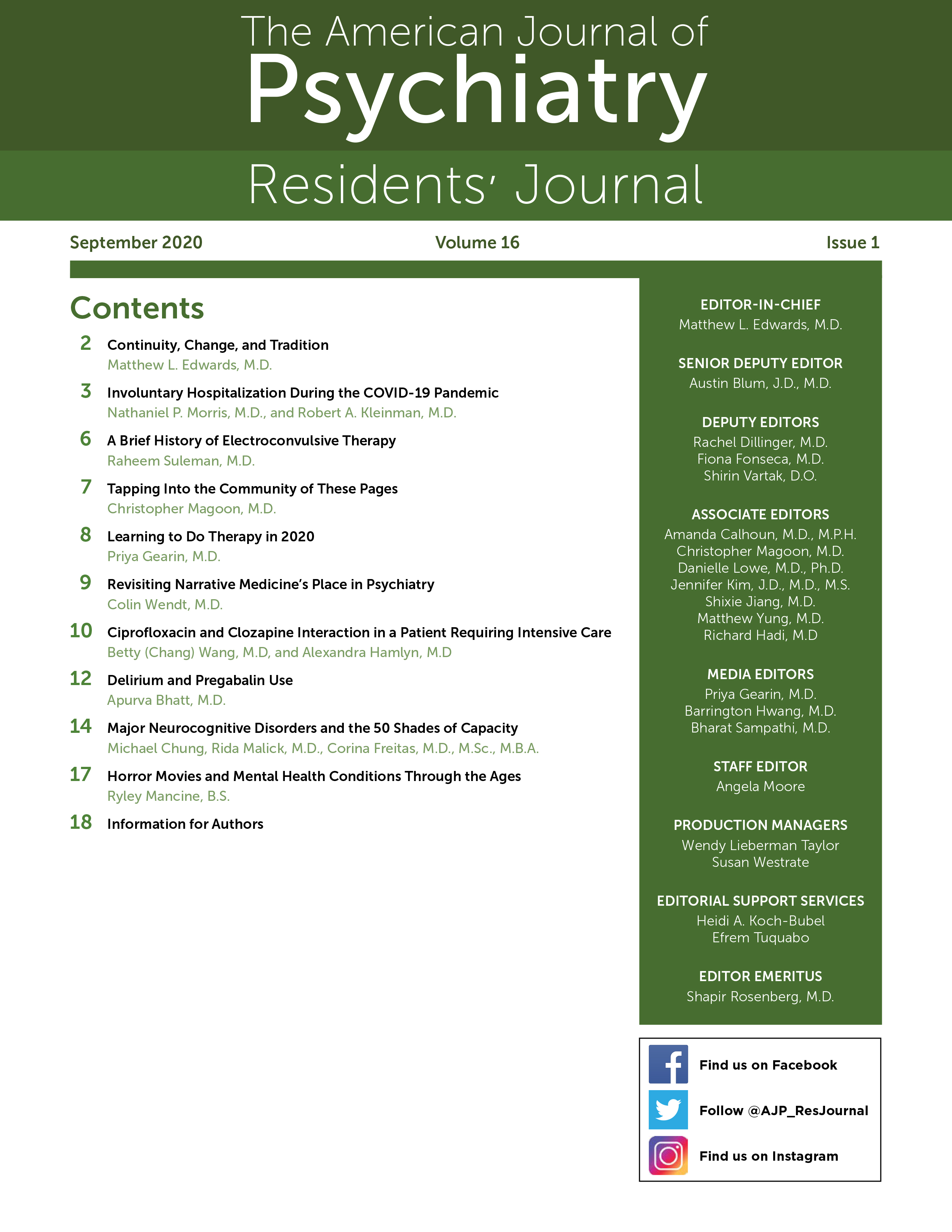Involuntary Hospitalization During the COVID-19 Pandemic
Abstract
Civil commitment statutes authorize involuntary psychiatric hospitalization in many countries. However, a pandemic disrupts the balance of ethical principles for involuntary hospitalization. Some patients will continue to require and to benefit from involuntary psychiatric care during a pandemic, but involuntary hospitalization also brings unique risks of infectious disease transmission that warrant consideration. In addition, changes to inpatient policies geared toward mitigating transmission risks may shape the effectiveness of involuntary care. Using a framework of four ethical principles—autonomy, nonmaleficence, beneficence, and justice—this article examines the shifting ethics of involuntary psychiatric hospitalization during the COVID-19 pandemic and offers suggestions for clinicians navigating these ethical dilemmas.



